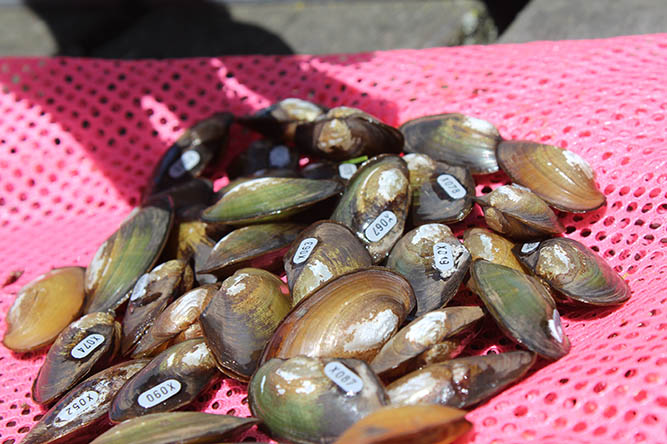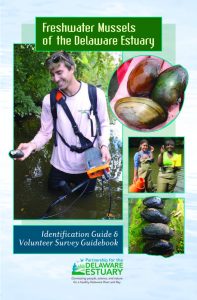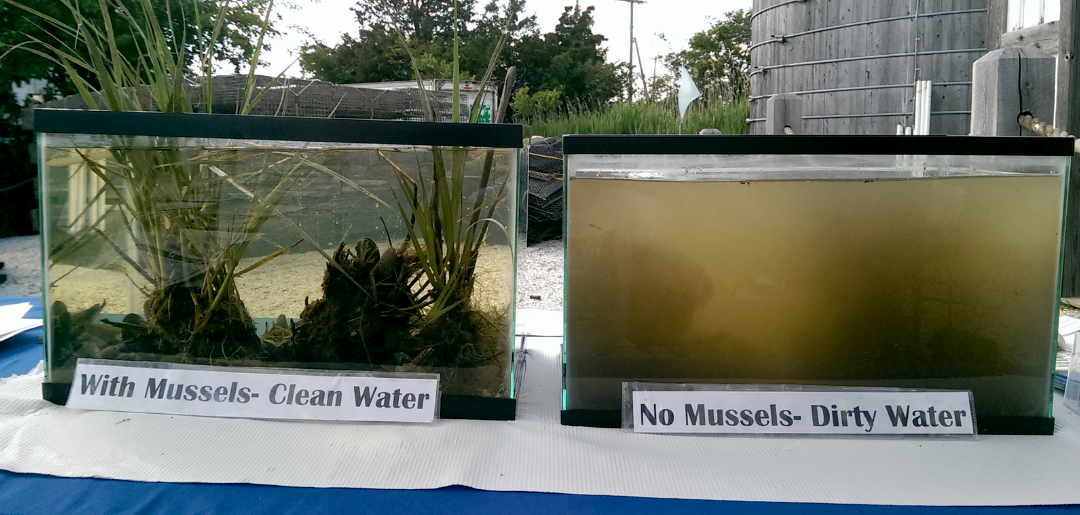Mussels for Clean Water Initiative (MuCWI)

Partnership for the Delaware Estuary (PDE) and the Pennsylvania Infrastructure Investment Authority (PENNVEST) have signed a multi-million dollar funding agreement for the development and construction of a large-scale freshwater mussel hatchery and research center. This agreement is the culmination of two years of work toward the Mussels for Clean Water Initiative (MuCWI).
 Freshwater mussels are bivalve mollusks just like oysters, clams, and saltwater mussels. Unlike saltwater bivalves, freshwater mussels live in our local streams and rivers. They provide valuable “ecosystem services,” or natural benefits, such as strengthening stream beds by keeping soils in place and providing food and habitat needed by other animals and plants. As filter-feeders, mussels supply another important service by cleaning the water in which they live. They suck water in and trap solids such as dirt, algae and other pollutants. Then they release the clean filtered water back into the environment. One mussel bed studied in Southeast Pennsylvania was found to remove 26 metric tons of solids from the water in a single summer season—as much as five grown elephants!
Freshwater mussels are bivalve mollusks just like oysters, clams, and saltwater mussels. Unlike saltwater bivalves, freshwater mussels live in our local streams and rivers. They provide valuable “ecosystem services,” or natural benefits, such as strengthening stream beds by keeping soils in place and providing food and habitat needed by other animals and plants. As filter-feeders, mussels supply another important service by cleaning the water in which they live. They suck water in and trap solids such as dirt, algae and other pollutants. Then they release the clean filtered water back into the environment. One mussel bed studied in Southeast Pennsylvania was found to remove 26 metric tons of solids from the water in a single summer season—as much as five grown elephants!